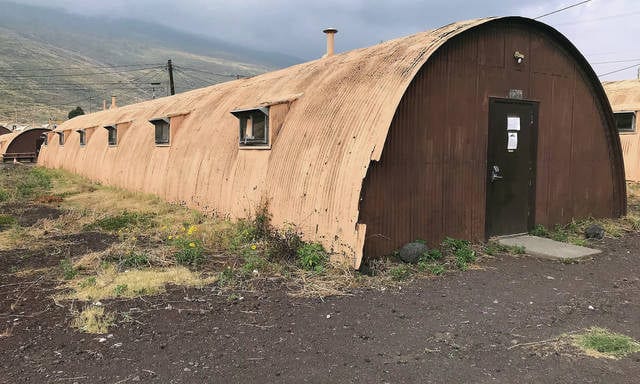
Preface
Strange how sometimes the present and the past can conflate. Scenes this week mirrored that decades old story. The present created a story that forced itself into the old one. This week’s book story was to be relatively easy. I was going to resurrect one of the stories I’d written about 20 years ago about the early days. It would just be a matter of finding it, cutting and pasting the story and then revising the primitive writing I’d done. The tale is about book farming and took place about 18 years before 20 years ago.
It’s 4 in the morning, Friday, the middle of November. Autumn. A freak snowstorm poured in all day Thursday, November 15th. I’m getting ready soon to go out and see if I can get down the mountain and into work. It is a “getaway day.” I’m supposed to be at the airport by 11 for a flight to Boston. I plan to attend the ABAA’s Boston International Antiquarian Book Fair tonight and tomorrow. I’d designed the whole week to make getting out of Frederick simple.
The thermometer says it is 32 degrees outside. It “rained” most of the night. Looking outside, I can see the driveway slanting steeply down into the blackness where the reach of the houselights ends.The driveway is a shiny black slash contrasting with the 6 inches of white snow everywhere else out there. I’d plowed when I got home last night. The snow was wet and heavy. Rain and sleet stung my face as I pushed the white stuff down the mountain, raised the plow, turned and sped back to make another run. It was also quite windy. I could hear the ice covered branches crackling in the forest all around me. Fortunately, most of the leaves are down otherwise there would certainly be trees and limbs pulled down by the combined weight of foliage covered with ice. Who knows, perhaps there are trees fallen and blocking my way out down there in the blackness. After my quarter mile driveway ends, there’s nearly a mile of gravel private lane until you get to the public road. It wouldn’t be the first time my exit was blocked by a fallen limb or tree, and I would need to cut my way out. Not the first time by a long shot.
If the shiny black slash of my driveway is ice, then I’m stuck unless I salt it walking (or sliding) behind a two wheel spreader for a steep quarter mile. Or I can wait for the sun to rise and melt it. IF the sun comes out. The forecast says that the day will warm into the 40s, and it will be partly sunny. But by then it might be too late catch my flight. This morning will be interesting regardless.
Getaway days.
The best laid plans…
Monday. I decided I should visit the Gaithersburg store. It is the same store that figures prominently in the very old story that follows. There is a new manager there. She’s doing very well. But I haven’t seen her for a couple weeks, and she has been not communicating. Others have gone down for van swaps and training, so I know things are not awry. I headed down Interstate I 270 and in about 25 minutes I was backing the empty van into the parking spot that I’d just pulled the filled van out of. I went in and greeted the staff. Both of them. One was a new face. I did my “Inspection Tour” walking up and down aisles, peering into spaces, checking the LP and Compact Disc room. Things looked pretty good. They had made a lot of buys over the weekend. A LOT. They’d not only filled the van nearly to the roof, but they’d lined the wide common area hallway the landlord allows us to use with boxes and boxes of raw books.
“They might fill the van today. We might have to come back down for another swap,” I thought.
I went over some project plans with the new manager. I asked her to communicate what she wants and needs for the bookstore more often with management up in the Frederick warehouse. It was a bright crisp autumn day. I got into the van and pulled out onto Shady Grove Road. In about a half mile, I took the exit for I 270 west toward Frederick—the same route that figures prominently in the story that follows. When I got back to the warehouse—chaos. Four big U-Haul trucks were at our docks. Two were leftovers from a massive charity sale in Anne Arundel County. Two were full of books that Book Scout Extraordinaire, Nelson Freck, had found somewhere. Clif had gone to Hagerstown. They needed a van swap. Two relatively new warehouse guys were doing their best to get the trucks unloaded and the boxes onto pallets and the pallets moved from the docks so more pallets could be loaded…and more… Unfortunately, they were sort of painting themselves into a corner. After another few pallets, they’d not be able to get any more loaded pallets away from Docks 1 and 2—our “low docks” where all the unloading on vans and low tailgated trucks takes place.
I became the warehouse manager and grabbed a pallet jack and began moving things here and there while directing others what to do and where to put things. Monday did not go as planned, but it was fun to get into the fray again. And it was good exercise.
Tuesday was uneventful except that it was the first hard freeze of the fall. When I pulled up to the warehouse, I saw all the tomato and other tender plants in the two gardens bordering the managers’ entrance were dead. I went to the Frederick store with Ernest, and we did an inspection and assigned some massive culling of very old stock from numerous sections. The rest of the day was carts, carts, carts of old books for me to review.
Wednesday morning I got an email from Nick Cooke at Black Swan. He and Ellen had agreed to display the prototype of the “If There Were No Books…” portfolio at the Boston Antiquarian Book Fair. Artist Alan James Robinson had put together and brought down last week. If you read last week’s story you’ll know about that. I’d reached out to Black Swan because I know they love Alan’s work and specialize in fine press books among other rare books. Nick asked if the book was still coming or was I going to bring it? I checked, and we had shipped it last week. It should have been there. Thus began several hours of emails and phone calls with FedEx. It was in Richmond, but for whatever reasons it hadn’t been delivered for four days. Nick and Ellen wanted to be on the road by noon. The internet manager and I reached out to our several FedEx reps. We do a lot of business with FedEx. Whatever she said got them to get a FedEx manager to find the package among the hundreds of thousands they must have there and hand deliver it to the Cookes. A miracle—but time consuming. I had a couple meetings downtown. I wore nice clothes and sat in neat offices at polished wooden desks. When I got back to the warehouse, I asked Clif to help me pull all the dead tomatoes and vines and sunflowers stalks out of the garden because of the snow that was predicted for Thursday. We tossed the dead foliage into the back of my old Ford F 150 pickup. He said he wasn’t feeling and would I mind if he went home sick. So, I became the warehouse manager for the rest of Wednesday. When I got home, I prepared for the next day’s storm. I brought in wood from the barn and filled up the black iron rings. I got the big blower out and pushed piles and piles of leaves from the driveway and walkways out into the woods.
Clif was still out sick on Thursday. I coordinated what I needed to and tried to get the Book Farm story updated and expanded. The snow picked up and showed no sign of relenting. Warehouse staff started leaving singly, in pairs and in clusters. Things were going to get better according to predictions, so I thought it best to stay and work until things started to melt a bit. I wrote and then went to work on some tubs of collectible books that had been piling up waiting for my final determination on their value and disposition. They’d been researched, and the results were written on 3×5 cards inserted into each book. I picked up each and read the card and when possible wrote a price on the card in pencil with whatever enhancements I’d want added to the description. Some were very cool and exciting. Some had confusing results, and I would either “guess” at a price or put aside asking for more info to be found. Some were just so cool and problematic they went into my office for the future. A Sophia Loren cookbook in Italian signed by Sophia. The American Creed in dust jacket signed by Frederick native Matthew Tyler Page. A NASA Moon Landing book inscribed from one early space honcho to another…problems—but GOOD problems to have.
It was now raining and sleeting. It was NOT getting any warmer. The report was that Interstate 70 (another road that figures prominently in the following story) was blocked at Braddock Mountain and traffic was backed up for many, many miles as commuters from the DC region tried to get home. My son, Joey, was still at the Frederick store working and waiting to see if 70 would clear so he could get back to the old homestead in Waynesboro, Pennsylvania. I asked if he wanted to get dinner.
Since the highways were blocked, I wended my way through the beautiful old town that is Frederick City. The roads were slushy, and it was still sleeting and raining. When I went into the store, I was surprised there were several customers and several employees still there.
“Why haven’t you closed?”
“No one told us to.”
…
We walked down to the Modern Asia Restaurant (the best Oriental restaurant in town.) It is in the same shopping center. We had some curry and eggplant and General Tso’s chicken. I told Joey that taking the northern route to Pennsylvania would likely be far better than risking hours on 70.
Then I headed home in my good ole 2010 Ford F 150 pickup. It has big nubby tires and a high clearance and four wheel drive. When I got to my drive, I followed a single pair of tire tracks for a half mile up the lane until they turned off into one of my three neighbors’ driveway. I continued on, driving over 6 inches of virgin snow. I expected to get stuck at any time, but even when I got to the steep incline of my drive, the truck stayed its course. Merry and Pippin were huddled in the cedar shavings of their doghouse and were very glad to see me. On Wednesday I’d also had the foresight to hook up the plow to my ATV. So I spent the next hour or two…pushing snow.
It is 6:30 am Friday. Dawn is brightening to the east.
If this story gets launched today, you will know I made it down the mountain. Right now I need to go out and check on conditions and then pack for the trip I’ll be taking to Boston…maybe.
The Book Farm
It was so very long ago. The images in my memories though mostly clear have borders that are a little out of focus like romantic Victorian vignettes. I was so young. I was so biblio inexperienced.
1980. I had taken a “summer job” at the Book Alcove in Gaithersburg Maryland. I think I was in there selling Carl Sickles, the owner, my Sports Illustrated magazine collection. For some years I had used the magazines as uprights or supports on a bookcase in my childhood bedroom. The shelves were unfinished pine planks. I stacked the magazines at either end of each board and place another board atop them. The stacks were just taller than the books on the shelves. The magazines also served as bookends. Does that make sense?
I guess I needed the money and the “SI” collection was certainly expendable. I’d outgrown that period of my life. I still loved baseball then, but I’d never look at them again. If I recall Carl and I were both upon our knees. He was counting the magazines.
“I’ll give you a quarter apiece. You have 327. That’s $81.75. Or I’ll give you a hundred in store credit.”
That was a lot of money. I was surprised at his generosity. I thought they were trash. After I started working for him, I discovered they actually sold well in those days—for a buck apiece.
Though I needed the money badly, I’m pretty sure I took the credit. I likely spent it that day.
“Are you looking for any help? I’m going to school in the fall but I’d like to work this summer.”
He surprised me again by hiring me on the spot. I think I started the next day.
Soon I was on my knees at the front of the store rooting through boxes or grocery bags full of books that people brought in to sell. Or I’d be out in the parking lot bending into the open trunk of someone’s car pulling out books I thought Carl would want.
In a few days, I was a “manager” as well as a “buyer.” Carl had me opening and closing to give him and Eleanor, his wife, some free time.
He surprised me one day asking me:
“We’re going to West Virginia tomorrow to buy books. We will leave at 6 and be back in the early afternoon. Do you want to come?”
“Sure!”
I met him and his son, Ray, the next morning outside the store. I’d agreed to take my truck if he would pay for the gas. It was an old faded white Ford F 150 pickup. There was an aluminum cap over the bed. Carl and Ray were going to drive the shop’s Chevy van. Carl was a Chevy man.
Carl handed me a paper cup of coffee and a paper bag with two doughnuts in it. The store was on Shady Grove Road between Rt 355 and Interstate 270. It still is. Although now it is Wonder Book Gaithersburg. We headed down Shady Grove and took the exit for 270 West and headed toward the small city of Frederick. I certainly had no inkling how important Frederick was going to become to me in the very near future. We exited on US Alternate 40—toward Middletown. That road follows the original route of the “Old Pike” early toll roads going west from Baltimore with beginnings in the 1700s. These roads would eventually link up with “The National Road” which had its beginning at the Cumberland Gap in 1811. Covered wagons going west took this road and headed to the western frontier via the Gap in the mountain chain where they could cross the Appalachian Mountains and settle exotic western territories like Ohio and Indiana.
We soon dropped into the Middletown Valley and continued west until we reached the little town of Boonsboro. The town was named after a relative of Daniel Boone. Today it has a prominent book feature. Bestselling author Nora Roberts (no relation) converted the old inn on the square into a fancy B&B. Each room has a romantic literary theme. They have names like “Nick & Nora”, “Elizabeth & Darcy”…and so on—you get the idea.
At Boonsboro’s town square, I followed Carl as he turned left and headed south toward West Virginia.
The next town we came to was Sharpsburg. Near Sharpsburg flows the Antietam Creek. The bloodiest day in American history occurred on September 17, 1862 in these parts. There were nearly 23,000 casualties.
My parents had taken me on a tour of Civil War sites about a dozen years before. We had traveled the triangle of Harpers Ferry and Antietam and Gettysburg. I was just a kid. I recall a souvenir shop in Sharpsburg where we stopped. My Dad bought me some Civil War bullets there. I thought the heavy lead objects were very cool to hold and bounce in my hand. I recall the shop had a desiccated human arm suspended above the door. A sign below it explained that it had been found on the battlefield. I remember running up a little rise on the battlefield and tripping. I rolled down into a patch of nettles. I thought I was on fire—dying—until Dad, a doctor, explained the stinging would soon end. Mom and Dad loved West Virginia so much they bought a cabin in Shannondale not far from Harpers Ferry. They didn’t have many years left to enjoy it. When you’re very young, you don’t think your parents are mortal.
After passing through the fields around Antietam, soon we were crossing the Potomac River with the ancient Chesapeake and Ohio Canal running along adjacent to it. We turned right after the bridge just before one would enter the college town of Shepherdstown. We went a few miles down a narrow unlined barely paved road before turning into a farm lane. Summer dust kicked up behind us as we passed the farmhouse and pulled up to the shop building built into the side of a little rise.
Carl had been there before. We stepped inside the upper level of the building into what had been converted into kind of an office. Two sweet-faced mature country women greeted him.
“Carl! It is SO good to see you! And Ray…and who is this?”
Carl introduced me to Gay and Harriet as he handed them a bag of doughnuts.
The office itself consisted of a large packing and shipping table. There were numerous three by five index card file fixtures. Two gray metal desks were buried under piles of books. Illumination was supplied by six bare bulbs on wires suspended from the ceiling. Numerous copies of AB Bookman Weekly were lying around prominently here and there. For this little room was a book cataloging and packing and shipping room.
The farm was a hard scrabble West Virginia dirt farm, but it was also a Book Farm—the Clifton Book Company. The owner, who had passed away the previous year, had also owned the vast Maryland Book Exchange in College Park. That store furnished textbooks to tens of thousands of students that attended the University of Maryland each semester for many decades. It would also buy back textbooks from students if they felt the same textbook was going to be used the next year.
When he bought that farm I don’t know. It was many years before. Maybe he bought it to get away from the big city. Maybe he bought it as a venue to store all extra books that flowed in to the Exchange. At some point he began filling the 2 big barns and 3 Quonset Huts with books.
“Where are you planning on looking, Carl?” Gay asked.
“I think Barn number two to start,” he replied.
“Well, watch that Quonset hut by the river. A fella saw a copperhead in there the other day.”
Gay handed me a notepad and a pencil.
“Now you keep track of how many books you find. They’re a quarter a piece.”
We went back out into the summer morning and got into our vehicles. I followed Carl and Ray down about a quarter mile of hard deeply rutted dirt track before we came to an old barn. The plank wood barn siding was faded by age and exposure to silver-gray. The metal roof was rusted. It was a typical American barn. A cement paved ramp rose up about ten feet to the broad barn door. Carl slid the big door open leaning into it with his shoulder.
Light then poured into a big black void. It revealed something I had never seen before but had fantasized about. Tens of thousands of books were everywhere. Everywhere! Piles, mounds, stacks, sprawls…The space was also filled with large wooden apple crates. These are the kind of big wooden boxes you used to see in use in orchards during harvest. They were about 4 feet by 4 feet wide and about 3 feet tall. They were turned on their sides and stacked three high. They were set in rows and books were stacked in them haphazardly. These impromptu aisles felt cavernous. They were so tall and dark.
As my eyes adjusted, I saw that this was actually a horrible sight. Biblio Apocalypse.
The aisles were filled with books. Literally. So many books had fallen or been pulled from the big apple crate “shelves” that the aisles were up to four feet deep in books. I clambered up into the first aisle and then climbed up onto the upper crate. I was walking atop thousands of books. They must have bolted the crates together so they wouldn’t topple. From that vantage I could survey the whole barn. Like some vision from the Twilight Zone, it was a biblio debris field. Vandals or Visigoths had plundered the books.
But the Visigoths that had wrought havoc at this “library” had been fellow book dealers, I suppose. Book Alcove was several months late to this game. Carl had told me this was only his third trip. Our predecessors had done a grand job of pillaging. I descended to the aisle and proceeded down it. It was on average a few feet above the actual barn floor. Although the books under foot were a complete jumble, they were compressed enough that my footing was not too precarious. At that height, I was eye level with the uppermost crate/shelf. The bottom crate was often nearly buried by fallen books. The middle crate was exposed. Though many books had been pulled out, there were still many in the crates. A row could hold thousands of the same algebra textbooks then twenty or thirty years old. Other textbooks, odd volumes of encyclopedias, junk books of all types were around me. But I began to find good books as well.
Well, what I thought might be good books. I was brand new on this side of the sales counter. All my previous experience had been as a customer.
I worked my way up and down each canyon of books. A canyon three feet wide and about twelve feet high. Only directly above me were there no books.
The barn also had lofts along its sides. Those also had apple crates on their sides—two high up there. This could be accessed by standing on the top of the uppermost crates below. There were some tall ladders, but they were of no more use, and the books tossed to the floors made it so there was not level place to set a ladder.
Carl called out from somewhere: “Finding much?”
Ray replied: “Nope!”
I piped up: “I’ve never seen so many books!”
Ray rejoined from somewhere: “And most are junk.”
“Why would anyone save all the old textbook duplicates?” I called out—addressing both of them.
“Who knows? Maybe they weren’t so old when they were brought here,” Carl called back. “Let’s give it another half hour and then move to a different building.”
We skipped looking at the tens of thousands of books on the barn’s lower level where the animal stalls had been filled with various types of impromptu shelving. We’d hit that on future visits.
We had each been lugging out box loads as we filled them. I was also building a stack of books for myself on the bench front seat of the F 150. Carl had said I could pick out anything I wanted.
“Just keep track of your quarters from my quarters.”
We had filled about a third of their van and half of my pickup in an hour or so. Carl and Ray got into their van and led me to a Quonset hut. (Not the one near the river with snakes.)
The books were a little more orderly in here. 8 foot metal shelving had been erected in here. All were painted olive drab. They were likely Army surplus from the World War 2 era. Most of the books were still on the shelves, but you could tell they’d been picked over by all the empty spaces between the books that were still there.
I would pull off any fiction author I recognized or non-fiction that might seem to have relevance or appeal and drop it into the box on the floor at my feet.
We finished up in there in about half an hour and moved on to another Quonset hut.
It was getting on to about 11:30 when Carl said: “Let’s wrap this up and head back. The van’s getting full.”
We bumped back up to the office, and Gay totaled the three sheets we handed her. I’m guessing we hauled away about 1500 books.
I handed her my sheet with the slashes of “fives” scrawled upon it.
There were about 100 I’d gotten for myself. I pulled my sad wallet out and handed her the cash. Most of my pay had been and was continuing to go for books I’d buy for myself.
Carl settled up. Gay and Harriet followed us outside. As we were getting into our vehicles, Carl told me we would stop for lunch at the Sharpsburg American Legion on the way back. I saw Gay and Harriet waving goodbye to us in my rearview mirror. They didn’t get many visitors, I suppose. We headed out the farm lane and the dust from Carl’s van rose up in front of me.
Carl had joined the Army Air Corps in the Second World War. He had been an Ohio farm boy and enlisted at age 17—lying about his age. Although he was pretty tall, they had made him a Ball Turret Gunner in B 17s. That had to be a terrifying year. He never talked about the flights—just about the safe landings and everyone getting drunk as soon as they could after landing.
Death of the Ball Turret Gunner
Randall Jarrell
From my mother’s sleep I fell into the State,
And I hunched in its belly till my wet fur froze.
Six miles from earth, loosed from its dream of life,
I woke to black flak and the nightmare fighters.
When I died they washed me out of the turret with a hose.
Randall Jarrell, who served in the Army Air Forces, provided the following explanatory note:
A ball turret was a Plexiglas sphere set into the belly of a B-17 or B-24, and inhabited by two .50 caliber machine guns and one man, a short small man. When this gunner tracked with his machine guns a fighter attacking his bomber from below, he revolved with the turret; hunched upside-down in his little sphere, he looked like the fetus in the womb. The fighters which attacked him were armed with cannon firing explosive shells. The hose was a steam hose.
Wikipedia
So, Carl was a veteran and welcome in the American Legion Hall’s little snack bar. Actually, it was more “bar” than snack bar. One of its main functions was to offer Quarter Beers to members as evidenced by the big chalkboard advertising only that in 6 inch tall letters.
We were there for the twenty-five cent hamburgers and quarter French fries and twenty-five cent Cokes.
Seems like everything was a quarter around there back then.
This stop became a ritual each time we returned.
The snack bar was almost empty. One old vet was leaning on the bar staring down at his beer.
“You better go wash up,” Carl told me. “Look in the mirror.”
When I went in the men’s room, I saw my face was filthy.
Then we headed back to Gaithersburg and unloaded the boxes. He didn’t have a storeroom then, so they went into the communal hallway the landlord was nice enough to let him use. Eleanor, Carl’s wife, went home when we’d arrived. I worked the counter and did buys while Carl and Ray began sorting some of the hoard. Ray ran the Book Alcove branch in Loehman’s Plaza in Wheaton Maryland. He made up boxes for his store. After a while Carl called me out to the hallway. There were a few stacks of books on the floor. We knelt on the floor, and he went over them with me. They were my “mistakes.” He gently explained why they weren’t worth putting in the store. Each was a wasted quarter.
We went back each week. After the third or fourth trip, I’d made my announcement that I wanted to open a bookstore. The subsequent trips I was now buying books for myself. My future bookstore.
Once I’d opened in September, I would continue to go by myself. I’d go on Tuesdays. I’d leave early enough so I could fill the pickup by 11 am and be back in Frederick to open the store. I opened at noon in those days.
One visit Harriet and Gay explained a bit about the operation before the old man died. He would bring stacks of books to them and each had a slip of paper with a price in it. Harriet or Gay would type the book’s description out on a 3×5 inch notecard and put it in a file. A carbon copy duplicate card was put in the book. They would also make lists and offer books in the “For Sale” section of AB Bookman Weekly. They would also respond to books listed by others in the “Books Wanted” section. They’d mail postcards with handwritten descriptions and prices for books they were offering.
“We haven’t told you about this because Carl was never interested. Most of the cataloged books were downstairs or in the farmhouse. After Mr. Clifton passed, people were allowed in to pick. They started out at $5, and Carl thought that was too much. When they got to a dollar, he still thought it was too much since they’d been picked over,” Harriet told me.
That would be Carl. He was the most generous giving man I’d ever known. But he could pinch a penny so hard that Abe Lincoln’s eye would bulge.
Gay continued the narrative, “But there are still lots of books downstairs. If you want, you can go down and pick. Gay and I spoke with Missus (the daughter) and agreed since you had taken so many books and were just starting out, you could pick books for fifty cents down there. Sometime you can visit the house and search as well. We think Mr. Clifton would have liked you.”
“Ok. I’d like to look at anything.”
Gay bent and pulled on a rope in the floor. A wooden trap door rose. I could see the top of the rustic wooden ladder that descended into darkness below.
“Pull the string at the bottom and the lights will go on.”
The bottom level of the shop was rough wooden shelving nailed together haphazardly. I’d say about half the books were gone. The space was dimly illuminated by bare bulbs here and there hanging by their wire from the ceiling above.
I now had several months of bookselling experience under my belt, so I saw that these were all decent books. It wasn’t the “treasure” hunting of rooting through thousands of junk books like in the barns and huts.
I began making stacks on the floor. How would I get them upstairs?
I climbed up the ladder and found myself staring at the back of two pairs of ankles. I kept my eyes level and asked:
“How do I get the books up here?”
Both sets of ankles made little leaps.
“Do I just carry them up this ladder?”
“Oh my! Heavens no. There’s a door down there. You can pull round the building and down to it when you’re ready.”
Odd. I can remember two books I found down there all these many years. One was H G Wells’ The Croquet Player. Actually, I found about a dozen of them in great dust jackets. I thought I’d found something rare. It turned out they were just book club editions—they were tricky ones—not obvious. Still, they were attractive books. The Croquet Player is a 1936 novella—”sort of a ghost story.” I think I still have a copy set aside somewhere.
The other was a pleasant surprise. It was a thin red cloth book with no lettering on the spine. It was behind some other books. Maybe it was there by chance. Or maybe, as so often happens, someone had hid it back there planning to return for it when they had enough money. When I slid it out, a very attractive graphic had been printed on the front cover only. (I know now that that is called a “publisher’s binding.”)
It was Mark Twain’s Captain Stormfield’s Visit to Heaven.
This was printed in 1909 and was the last book published by Twain in his lifetime.
Of course, I thought I’d found a great treasure. But even then it wasn’t worth very much. Now you can probably find a nice copy under $30 with a bit of searching online. I probably still have that book tucked away somewhere.
When I went on my own, I never stopped at the American Legion although I’d been given permission by the bartender/short-order cook. I was too busy for such silly distractions like lunch. I was a businessman. Time is money! But to this day I can recall sitting at the Formica table with Carl and Ray and enjoying the 25 cent treats. I think the cook shook liberal doses of pepper on the meat, and that made the burgers distinctive.
One day in late fall, Gay called me. “Missus sold all the books. It is some fella from Tennessee. He wore a white suit and white shoes. He treated Missus and us like we don’t know books. Lordy, I’ve been selling books in AB Bookman since before you were born, I wager. But Missus said it was time to let the rest go. Not many folks are coming up any more. She said you could come one more time. She told that fella that she owed you one more pickup truck load of books.”
So, I went up one last time. I went into the barns and viewed the apocalypses for a last look.
“What would anyone do with all these junk books?” I thought.
Well, in a week or so I saw commercials on TV. Back then I think DC only had 5 or 6 stations. (There was no cable yet?) The commercial appeared frequently on most of them.
It went something like this (with images of rows and rows of books scrolling past in the background):
“WE DISCOVERED A HIDDEN TREASURE. MILLIONS OF BOOKS THAT HAVE BEEN KEPT FROM THE PUBLIC FOR DECADES…WE’VE BROUGHT THEM TO WASHINGTON DC SO YOU CAN SEARCH FOR YOUR OWN TREASURES!…”
I laughed aloud the first 5 or 10 times I saw it.
The ads ran for a few weeks and then changed to a bag sale: “PUT ALL THE BOOKS YOU FIT INTO A GROCERY FOR ONLY $5!”
Gay and Harriet came to visit every couple months for a year or two. They’d each bring a small box of books to sell. Books they’d put aside over the years as a kind of annuity. They confided in me that the White Suited Fella had lost a lot of money on the deal.
“He blamed Missus, but she wouldn’t hear of it. She told him he knew exactly what he was buying, and he had made a deal to remove every book. It was in writing! With lawyers and all.”
She ended up letting him dig a pit and burn them all on the farm.
That ended the Clifton Book Company. I had been very fortunate. I needed a lot of stock to fill my new store and only an hour away there was a Book Farm with a million or two or…who knows how many books…all for a quarter each. Well, most of them.

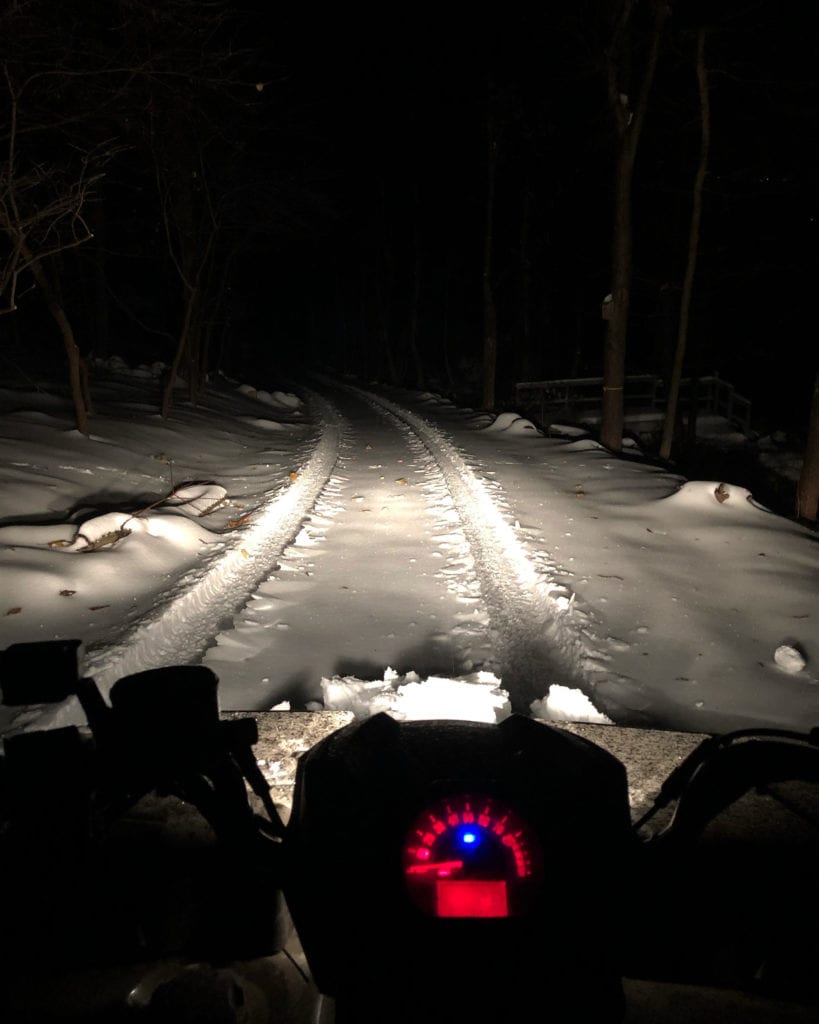
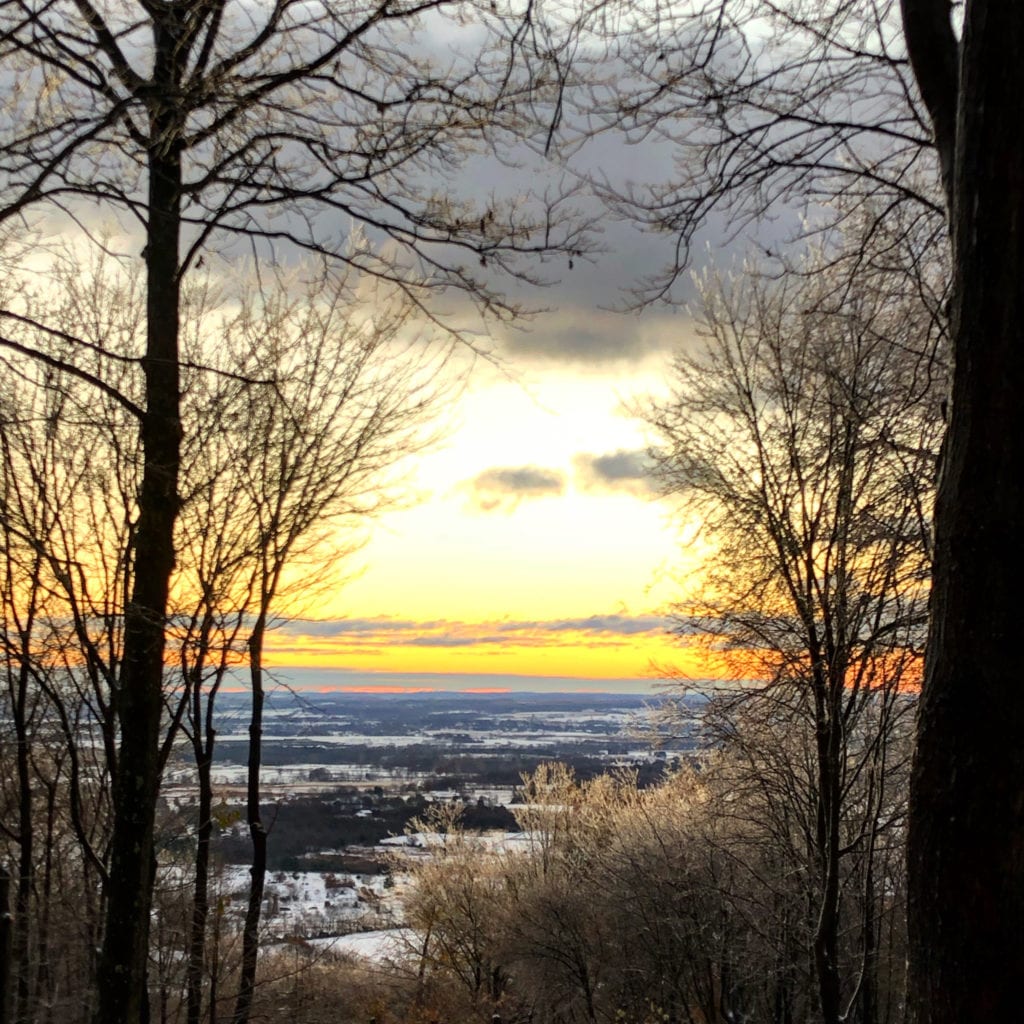

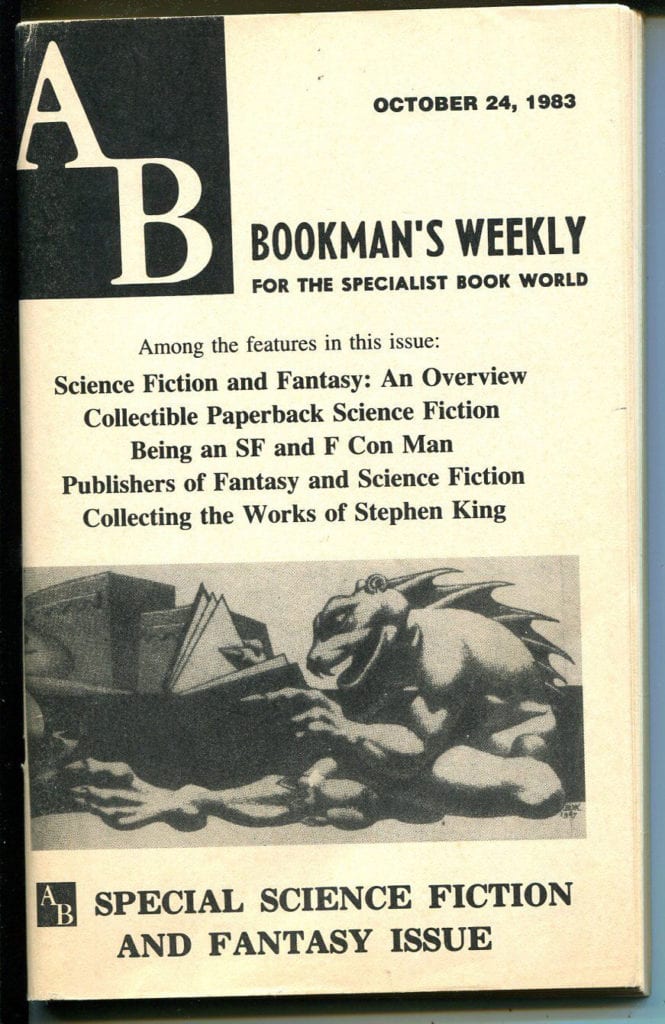
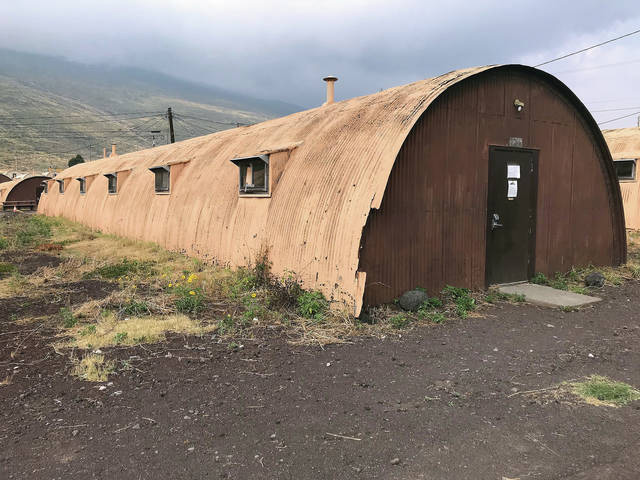
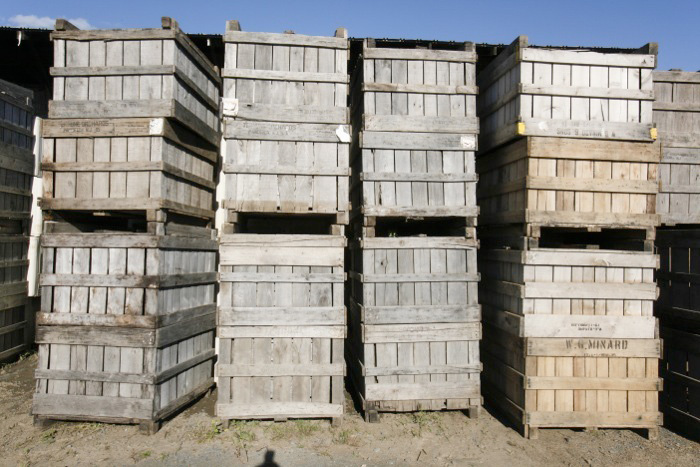
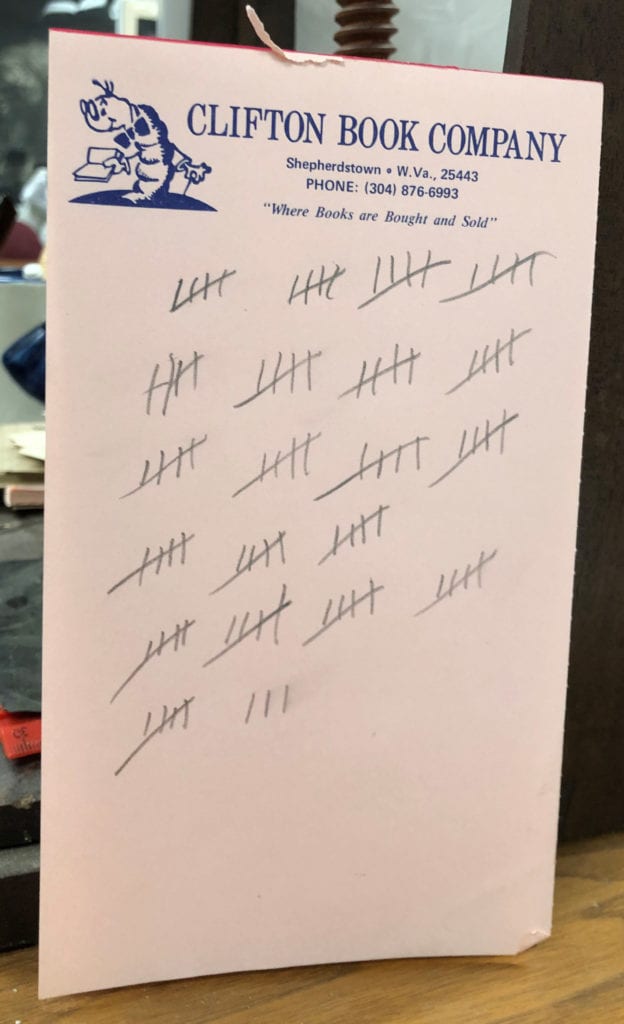
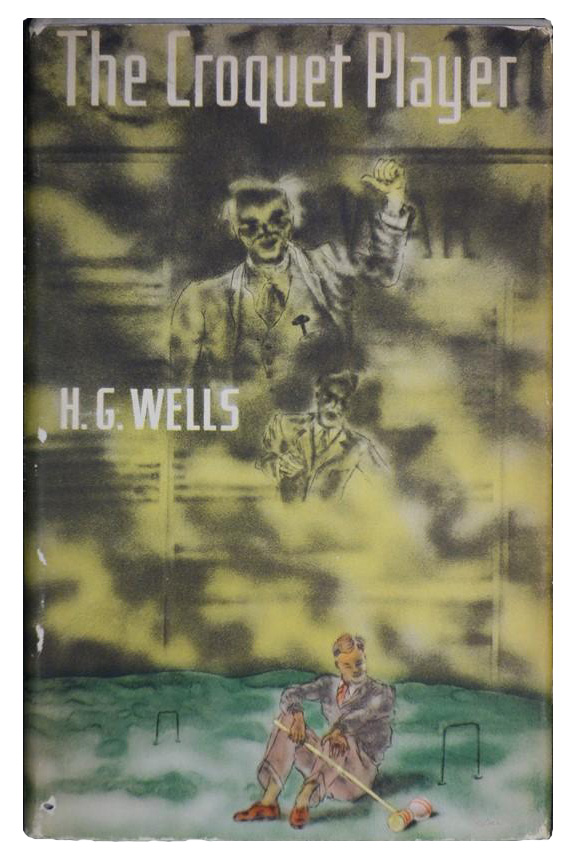
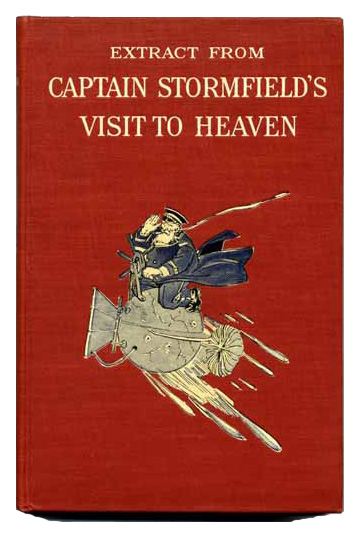
Great story–or rather stories. When I was younger I always wanted to drive across the country with David Streitfeld or John Thomson and stop at shops, Goodwills and book barns like the book farm. Perhaps it’s not too late.
In the meantime, I’d like to know more about the Robinson portfolio and what interest it may have drawn at this weekend’s Boston book fair. -md
Thank you, Michael.
I think most of the remaining Book Barns in the Mid Atlantic are like the one in a previous blog – “mothballed”. But who knows whats on the road in the midwest beyond the Cumberland Gap nowadays. I understand there are still “Barns” open to the public in New England. Bartleby’s would likely know.
The fair went well for Alan. He hadn’t been to one for 20 years or more. He reconnected with old friends, fans and booksellers.
There was good interest in the portfolio. I think 3 confirmed subscriptions. He signed and handed out a lot of Prospectuses. I posted it on ABAA lists and have 7-8 requests for prospectuses. Chuck
I was one of the lucky ones as we got to the Clifton Book Company. There were sure some gems if you had the time to dig. We spent several months there and purchased over 1000 books, some going back to the 1700s and many of them signed. We even found a set with the bookplates of Charles Dickens, which was featured in the local paper. Unfortunately, someone overheard the interview and broke into my father’s car and tore off the front board on one of the books because they wanted the Dickens bookplate.
That is very cool Andy.
I haven’t read that blog for awhile.
I went there so many times in the summer and fall of 1980.
Book Alcove and I were pretty late to the game and lot had been picked and a lot dumped onto floors…
Happy memories tho…
Thanks for commenting!
Chuck